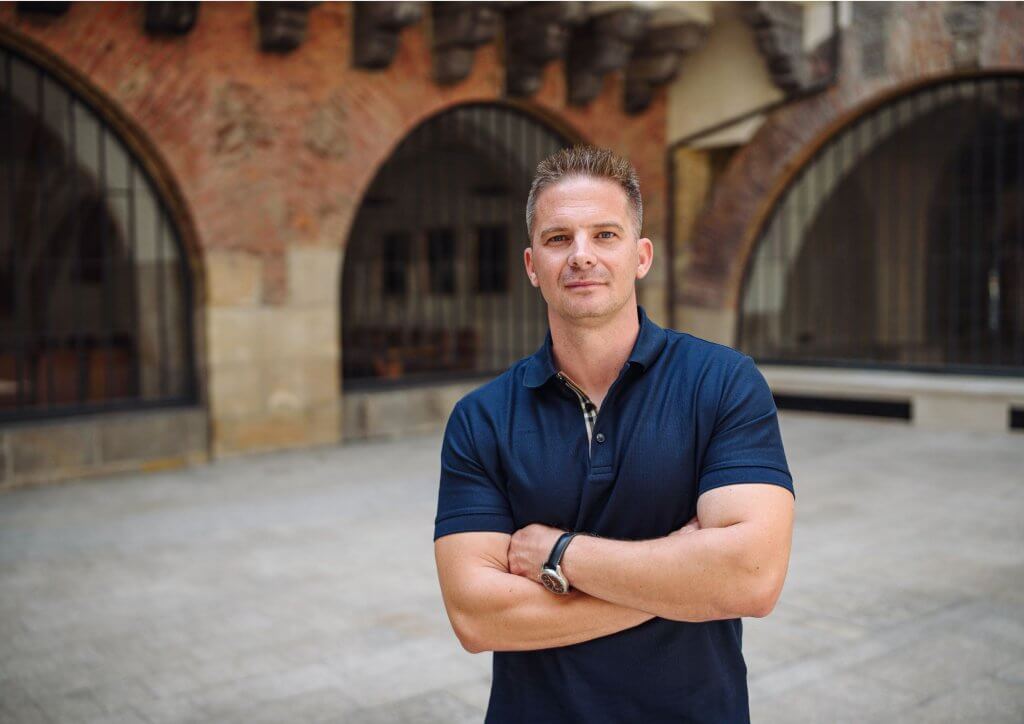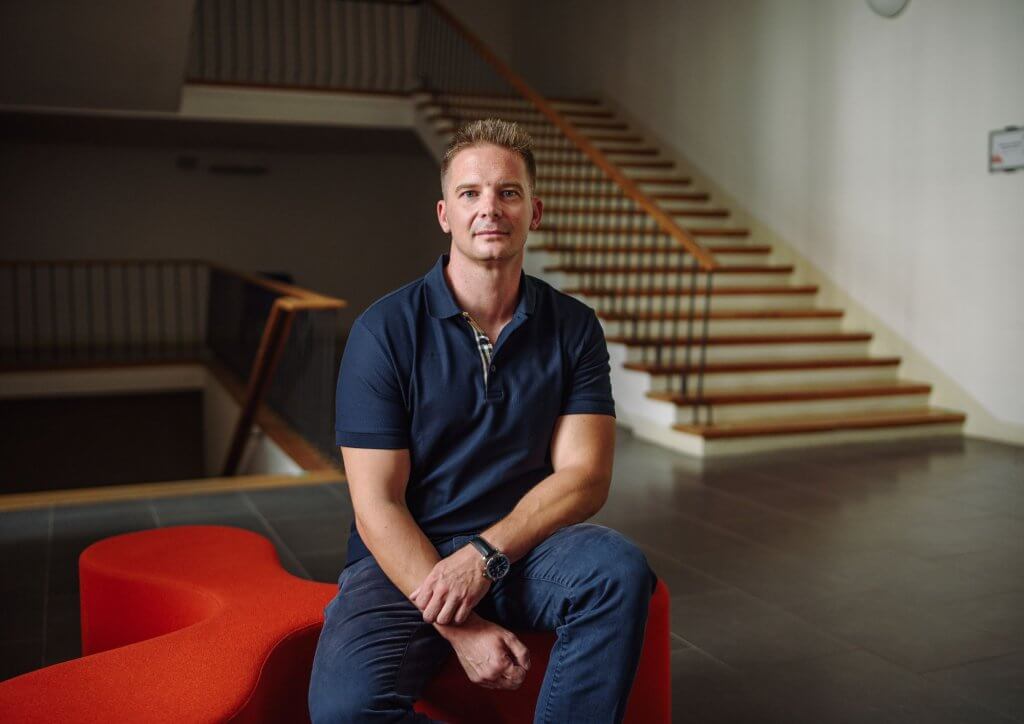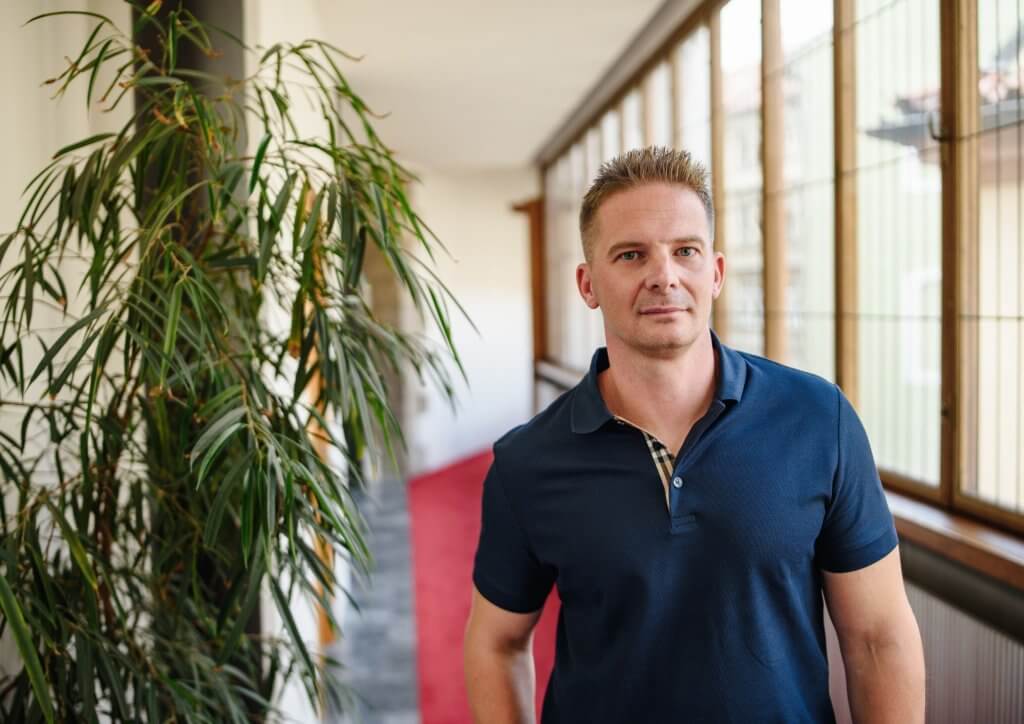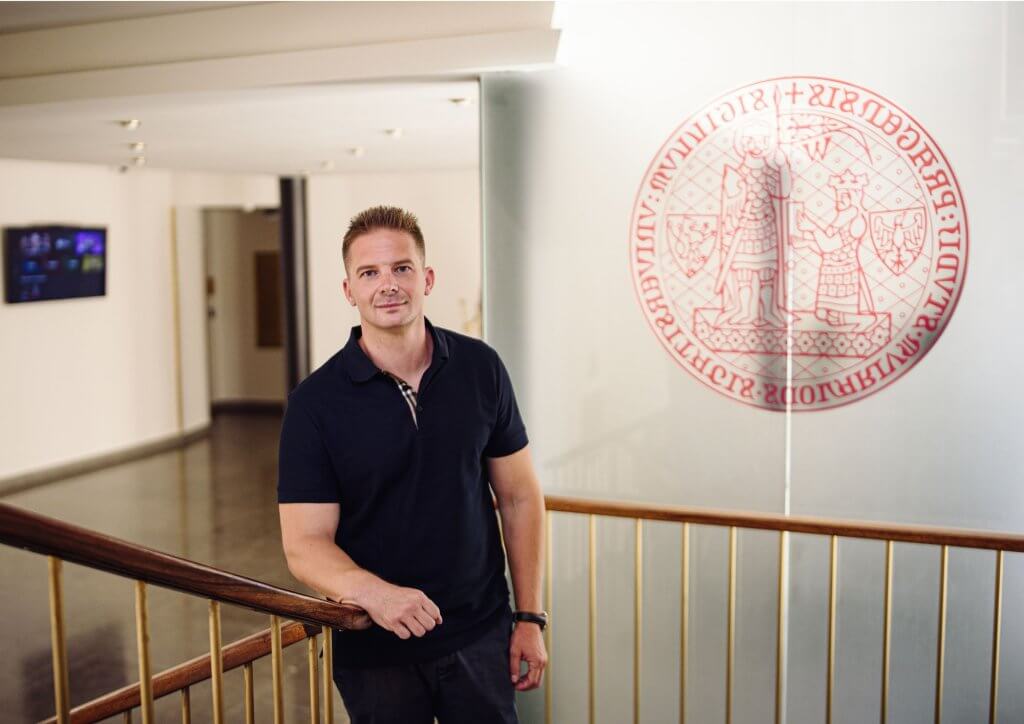Theory closely linked to practice. The professor from ISS is engaged in public sector research

Prof. Michal Plaček from the Institute of Sociological Studies FSV UK focuses his research mainly on the decentralization of public administration and decision-making in the public sector. There is no doubt that he is not idle on his academic path, which he closely connects with practice – he cooperates with a number of research institutions, foreign universities and domestic public administration. He also participates in a number of projects in which, among other things, he tries to connect technical fields with social sciences. This year, he received a professorship in the field of public and social policy.
The main motivation for embarking on an academic career after completing his Master’s studies was the desire to understand the functioning of the public sector. While employed, he began to study a combined form of doctoral studies focused on public economics and economic policy at the Masaryk University in Brno. “Studying and especially reading scientific articles helped me a lot at work. I learned to work better with data, evaluate it and use experience from abroad. In the first phase of my academic career, I wrote in my articles about what I encountered at work,” describes prof. Plaček, who decided to stay in the academic world after completing his doctoral studies.
In his research, he has been dealing with a whole range of topics – management in the public sector, corruption in public administration, the issue of green public procurement, or marginally also development studies. In recent years, he specifically focused on cross-sector cooperation in times of crisis – he was interested in why the public sector does not want to cooperate with other actors, such as non-profit organizations, and how this cooperation was affected by past crises, i.e. the economic crisis in 2008, the migration crisis in 2015 or the covid-19 pandemic. “Simply put, some crises have the potential to change the approach to cooperation, sometimes even by leaps and bounds,” says prof. Plaček. “It seems that the Czech public sector knows how to perfectly manage the first stages of the crisis – that means providing accommodation and basic needs. But then it has a big problem in the next stages, when it has to make more sophisticated policies and focus, for example, on the labor market, education or mental health,” he adds.
Furthermore, prof. Plaček takes a deeper look at sustainable public procurement – that is, whether public sector organizations take into account the environmental impacts of a product or the wages and conditions of suppliers’ employees when making purchases. He is also interested in why some organizations are better or worse at public procurement or what role the size of the organization, transparency, corruption or regulation play. “Most current studies are based on questionnaire surveys, which have a very low return rate of around 10 percent. And thus we do not know much about how organizations that do not respond to questionnaires procur. Using our algorithm, we can find out the actual share of green contracts in individual organizations. We will find out whether what organizations report about their green purchases is true and whether questionnaire surveys are mainly participated in by those organizations that have a positive attitude towards green procurement,” he states.

Cooperation with foreign institutions
In his research, prof. Plaček cooperates with a number of foreign universities and research centers around the world – for example, with Arizona State University in the United States of America, with the Leibniz Institute of Agricultural Development in Transition Economies in Germany, or with British institutions such as the University of Oxford or University College London. Along with this, he also cooperates with researchers from Italy or Spain. “I was surprised that in recent years, foreign partners, often from very good universities, have been contacting us saying that they are interested in cooperation. I think that as Charles University we are not bad at all. When I was at Oxford, colleagues from various universities spoke really well about our university and generally praised living conditions in the Czech Republic,” emphasizes prof. Plaček.
He also carried out some research projects in developing countries, and at the faculty he supervises doctoral students who come from these areas. In 2022, he went to Indonesia with FSV UK PhD student Choirul Anam. In the country, they jointly presented the results of a research devoted to the effectiveness of the so-called village funds. This project was introduced in 2014 by the Indonesian government as a program to reduce poverty mainly in the country’s agricultural areas. “Choirul then returned to Indonesia after his doctorate and now has a great career. His story inspires many young people and is an advertisement for our university. I continue to cooperate with him, the National Research and Innovation Agency in Indonesia and University College London on joint projects,” prof. Plaček adds.
However, according to him, cooperation with doctoral students from developing countries can sometimes be more challenging due to their different culture, funding or entry conditions. But still, as Choirul Anam’s story proves, he sees a great benefit in it after all. “They can then have a much bigger impact at home if they come back. For example, I recently collaborated with a student from Pakistan who applied to us for a doctorate on the topic of public procurement. Together we prepared a project with which she eventually got to a good university in the USA, where she will have much better conditions than here. I could probably be angry, but I’m glad that she succeeded and that students with internationally competitive projects are applying to us,” prof. Plaček praises.
Theory combined with practice
He considers the developing cooperation of research institutions with the public sector to be very important. Thanks to this, researchers can show that social sciences have their place in society. “On the other hand, it also brings its own risks. I think that universities should not act as more affordable consultants, but should help the public sector to build its own capacities. This means that the public sector has its own people who will be able to prepare documents and make effective decisions,” prof. Plaček notes. “If the public sector becomes too dependent on our aid and external supplies, it will become incompetent,” he adds.

Last year, for example, he collaborated with the Ministry of Regional Development in the creation of a chapter of the National Public Procurement Strategy, which was devoted to sustainable procurement. Experts from the aforementioned Arizona State University and the Sustainable Purchasing Research Initiative (SPRI) in the USA were involved as supporting research actors. The link between the research team of FSV UK and SPRI with representatives of the Ministry was ensured by the Centre for Knowledge and Technology Transfer. “We provided our colleagues from the ministry with a literature search, collected new data from small municipalities for them, helped with their interpretation and provided some unsolicited advice for implementation,” prof. Plaček commented. “Ultimately, we managed to maximize the impact of this project for all parties. The data will also be used by our colleagues from Arizona State University, and we have prepared a new innovative course on sustainable procurement at FSV UK, to which we have invited colleagues from the ministry. The course therefore had a very practical impact,” he praises.
He is also currently collaborating with the Centre for Knowledge and Technology Transfer on a project called Organizing for Future, in which Charles University is participating together with St. Andrews University in Scotland. The project focuses on forming a network of scientists working on the topic of sustainability from different perspectives of social sciences. “In the beginning, we were worried whether we would find any common themes, and in the end we have quite a few – for example, accountability, which is absolutely crucial for both the public and private sectors. As part of the project, we organize seminars that are accessible to everyone. We invite interesting speakers from the USA, Canada and the UK to them,” prof. Plaček mentions.
He is also newly participating in a project called FOP with doc. Roman Fojtík, researcher at the VSB – Technical University of Ostrava and the Czech University of Life Sciences. It is a unique thermal battery that uses powder to store energy. “Often, we deal with the division of social sciences versus technical fields quite unnecessarily. In the end, most of the products are still used by people, and the fact that these fields work together and sometimes completely merge is natural,” prof. Plaček says. “If you want to succeed with any product, it should be people-oriented. And that’s what we, social scientists, are good at. And Roman is good at technical solutions,” he adds.

Another effort to connect technical fields and social sciences is represented by the CHERISH project, with which prof. Plaček with PhD students at FSV UK and colleagues from the Faculty of Civil Engineering at VSB – Technical University of Ostrava succeeded in a prestigious competition organized by the Canadian university HEC Montreál. They recently advanced to the next round with a project that focuses on sustainable housing for the elderly. “This is an innovative wooden building that is cheap and safe and can serve as social housing. We also provide mapping of the needs of potential user groups, design of adaptation activities or optimization of services. It is thus a complex product, not just a house,” prof. Plaček explains. “The project also includes individual coaching and courses from HEC Montreál, which are really good. I’m very happy that we could involve our PhD students, because they do a great job,” he adds.
More publications and foreign collaborations
He considers his most important recent academic achievement to be his last article, which was accepted into the journal Public Administration, which is one of the oldest and most respected in the field. “This is a comparative study of cross-sectoral partnership focused on the Czech Republic, Slovakia and Poland. I think we are the first authors from the Czech Republic in the history of this magazine,” prof. Plaček says. Along with this, he was also recently pleased by an invitation to the University of Oxford, where he appeared as a panelist on the topic of green procurement. “We will present our research there again in September. And we are also discussing further cooperation,” he says.
In addition, he is also working on two books. The first of these, due to be published by Cambridge University Press, looks at how external shocks affect the development of theories about the non-profit sector. The second publication is focused on green public procurement from a global perspective. “Together with a colleague from Spain, we are the main editors. We managed to get authors from all over the world and involve practitioners and academics in brainstorming. The book is also one of the pilot projects of the Springer publishing house, where we test artificial intelligence and machine learning as a tool for authors, which should facilitate the writing of scientific books,” prof. Plaček says.
In the future, he would like to continue to cooperate with the Centre for Knowledge and Technology Transfer, to further develop cooperation with University College London and Estonia’s Tallinn University of Technology, and to try to introduce new topics into the public space. “And of course I think I still have something to say through publications,” he concludes.


